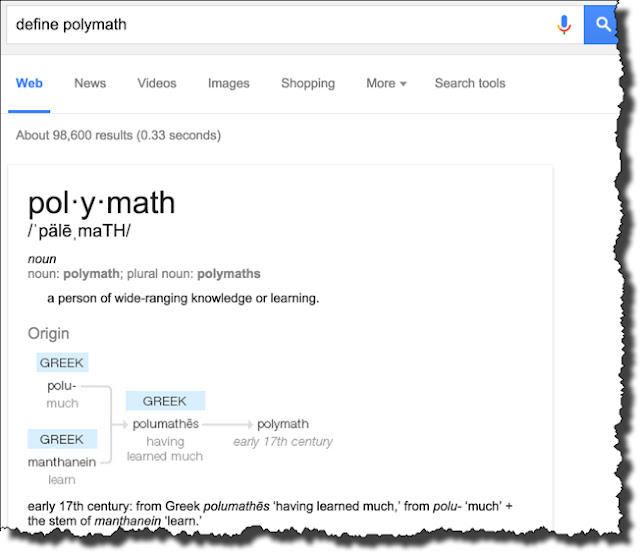1. Can you find more people like those above? They must be skilled in multiple arts / sciences / domains-of-expertise AND have left a record so we can tell what they were so good at doing. And just as importantly, HOW can you do a SearchReSearch strategy to identify these folks?
And I found a plausible word: polymath That sounds exactly right.
But I wanted to try a different approach as well, just to be sure that I hadn’t missed some other terminology.
So I first looked for a Reverse Dictionary (remember this? we talked about Reverse Dictionaries before: they look up words when given terms from a definition). I like OneLook’s Reverse Dictionary, so here’s what you’ll see there (given the same query)–several terms that look promising.
As you can see, polymath is there as well, but so are cambist, chaldean, and deipnosophist. (I looked up cambist and chaldean, and they’re both off-topic.) But deipnosophist is fairly interesting. So I checked it out–could this be a possible word to use?
That’s a great term to know (especially if you find yourself studying for an upcoming SAT exam), but it’s more like a raconteur, and not quite in the same league as polymath. So I checked on the term–what really is a polymath:
That sounds pretty decent. But I thought I’d do a quick check, just to be sure I’m on target here. My query [ Leonardo da Vinci polymath ] is intended to check to see if other people describe him as a polymath. Answer: They sure do! There are even images of Leonardo, the polymath.










